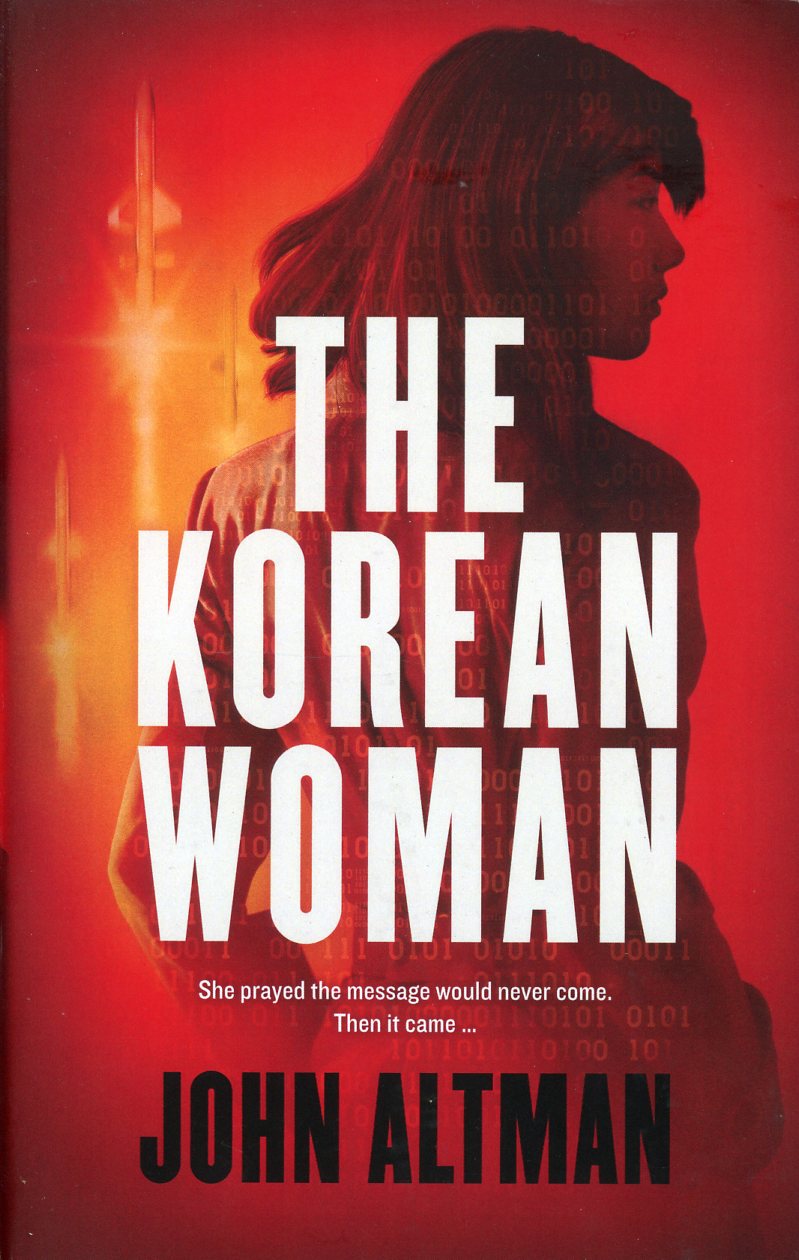
|

|
|
John Altman, The Korean Woman, 2020
Click on back cover to enlarge
Yosha Bunko scans
|
John Altman
The Korean Woman
Ashland (OR): Blackstone Publishing, 2020
289 pages, paper cover
This is the stated "First paperback edition". The colophon also states "Copyright © 2019 by John Altman" and "Originally published in hardcover by Blackstone Publishing in 20##".
The story is told by a versatile 3rd-person narrator who jumps between places and protagonists in familiar web work manner. The heroine is Dalia Artzi, an elderly Israeli agent who teaches at Princeton and hangs out at Langley with her CIA counterparts, including one Benjamin Bach, who does not appear to welcome her involvement in the CIA's tracking of the "Korean woman" known in their dossier as Song Sung Young, a DPRK sleeper.
Song, as the seemingly omniscient narrator also calls her, was admitted to the United States as "a South Korean named Park Ha-Soo, with a B-1 domestic employment visa." However, a State of New York Department of Health marriage certificate shows her as Mi-Hi Pyung, from Seoul. Her husband -- Manhattan-born Mark Abrahams, a lawyer working in the legal section of the U.S. Mission to the United Nations, "where he had been responsible for the levying of sanctions against North Korea by the Security Council."
Such details are revealed on page 28 -- 10 percent into the story. By page 225 the narrator decides it's time to reveal how Song acquired her name and seduced Abrahams.
Even with all her training, she had struggled to play his game. ["Mark's brand of flirting had been uniquely American. The gunfighter-with-belt-slung-low quality, that deep-rooted, unexamined assumption of entitlement. A cowboy, through and through. Except that, instead of spurs and six-guns, he equipped himself with merino suits and encyclopedic legal precedents."] At Heaven Lake, she had learned seduction from a kidnapped South Korean woman named Jeong Mi-Hwa. (The name, meaning "beautiful flower," had been the basis for Song's chosen alias, Mi-Hi.) . . .
Americans put less emphasis on coupledom -- that cowboy mentality again. Men overly eager for domestic bliss were perceived as soft. Hence Mark Abrahams' undisguised aggression and vaguely predatory male gaze.
Song, fumbling, had improvised. She bit her lip; she touched her hair. A shy pose with an undertone of eroticism. She knew that many American men fetishized East Asian women. She operated on instinct, batting her lashes, gazing submissively down.
It worked. She reeled him in . . .
Even readers with respiratory disorders or short-attention spans will not have to hold their breath or be bored too long -- the sentences are so short, the plot so thin, the show so thickly laced with tell, the hook so quickly re-baited.
|